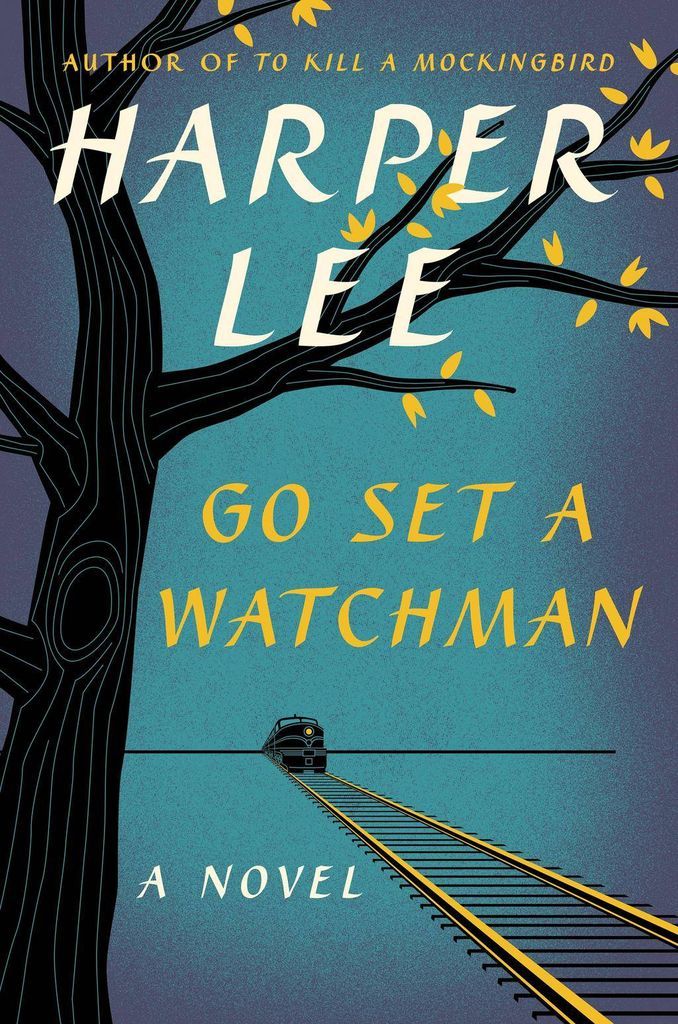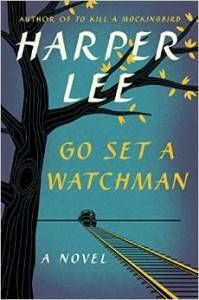
Being Real About Racism and GO SET A WATCHMAN
I had no plans to read Go Set a Watchman. I love To Kill a Mockingbird in the way you love a thing that has been a part of you for years upon years. My only concerns were vague worries about whether it made sense to publish a manuscript, even from a great author, without editing it; whether Lee wanted it published; whether it would be worth reading at all. But my curiosity was piqued when I saw people reading it, enjoying it, and then suddenly and vehemently getting angry. It was curiosity that sent me to the book, not deference for Lee or TKAM–just an honest wonderment.
This is probably best, because at its heart, Watchman is all about taking down those gods we hold up without question. Mockingbird has been one of those gods for American literature, as surely as Atticus Finch has been one for both the young and the grown Jean Louise. We have held up this book for decades and said, “Let’s read and talk about race in America.”
We love Mockingbird the way Scout loves Maycomb. It is a part of us, who we are as a country is bound up in this book. It is also not what we think it is, just as Maycomb is not the quaint, kind place Scout keeps in her heart.
Mockingbird is where we can have a talk about race that is sheltered and simple. It takes us only to the fact that racism exists and that one person has the power to fight against it. Mockingbird fights against a man unjustly accused, but it cares little about the many ways racism permeates life: segregation, prejudice, poverty, systemic discrimination. Those things all existed in Maycomb in the ’30s, but matter little in Mockingbird.

Jean Louise can look back on what happened in her childhood and see that it was not enough, not nearly enough. Just as we can look back now at the civil rights movement and see that it was not enough then, either. This is the book to read if you want to know what people think when they weep over the Confederate flag being taken down. Watchman gives just about every excuse imaginable and it is not at all an easy thing.
I listened to the audiobook, read by Reese Witherspoon. I was lulled so quickly into the first half of the book. Witherspoon’s gentle drawl fit the material beautifully. I wondered what could possibly happen to make me hate this book. I found out, of course. And then spent the second half of the book having to sit through every single word said by racist character after racist character defending their beliefs and their actions. Insisting they are not racist, insisting they are doing the right thing, even Jean Louise herself says a few things that will make you want to slap her across the face. It left me more than once feeling physically ill, just like it did for Jean Louise.
But this is the truth. This is where Mockingbird leaves us, not with a city where everyone is really equal and justice is served, but with a city where occasionally a black man is able to escape certain doom but only when a white man decides to take it upon himself to help. Jean Louise is certain that her town is different and the people she loves are different. She is, of course, wrong.
Mockingbird is racism for children. It sees only what a child sees.
Watchman is the crashing down of ideals that comes with adulthood, the understanding that everyone is fallible, that many of the people you care about are more racist than you could imagine when you loved them with the innocent trust of a child.
But Watchman is not the end of the story. This Scout, who despite her conscience still sees Blacks as backwards and interracial marriage as something that won’t really happen, is not far enough. This Scout is a person who could defend the Confederate flag. This Scout has not yet escaped Maycomb, has not fully separated herself from it, has not yet become a fully-formed person without Atticus as a foundation.
What we need now is one more Finch, not Atticus or Scout but a new Finch all together: one who will celebrate Bree Newsome and weep for Sandra Bland, one who knows that the 14th amendment is more important than the 10th, one who would not have endless conversations about race with other white people. Harper Lee will never write that book, but others have and others will continue to do it. Will we stay in the safety of Mockingbird? Or will we decide that it is just the first step of so many more to come?








